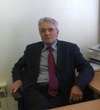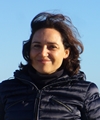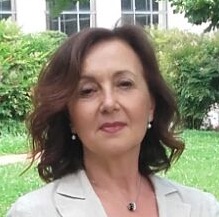Studying at the University of Verona
Here you can find information on the organisational aspects of the Programme, lecture timetables, learning activities and useful contact details for your time at the University, from enrolment to graduation.
Academic calendar
The academic calendar shows the deadlines and scheduled events that are relevant to students, teaching and technical-administrative staff of the University. Public holidays and University closures are also indicated. The academic year normally begins on 1 October each year and ends on 30 September of the following year.
Course calendar
The Academic Calendar sets out the degree programme lecture and exam timetables, as well as the relevant university closure dates..
| Period | From | To |
|---|---|---|
| Sem. IA (31.10.16 sosp.lezioni) | Oct 3, 2016 | Nov 12, 2016 |
| Sem. IB | Nov 14, 2016 | Jan 21, 2017 |
| Sem. IIA | Feb 27, 2017 | Apr 22, 2017 |
| Sem. IIB | Apr 24, 2017 | Jun 10, 2017 |
| Session | From | To |
|---|---|---|
| Sessione Estiva | Jun 12, 2017 | Jul 29, 2017 |
| Sessione Autunnale | Aug 21, 2017 | Sep 23, 2017 |
| Sessione Straordinaria | Jan 22, 2018 | Feb 24, 2018 |
| Session | From | To |
|---|---|---|
| Sessione Estiva | Jul 10, 2017 | Jul 15, 2017 |
| Sessione Autunnale | Dec 18, 2017 | Dec 21, 2017 |
| Sessione Invernale | Mar 23, 2018 | Mar 29, 2018 |
| Period | From | To |
|---|---|---|
| Festa di Ognissanti | Nov 1, 2016 | Nov 1, 2016 |
| Festa dell'Immacolata | Dec 8, 2016 | Dec 8, 2016 |
| Vacanze di Natale | Dec 23, 2016 | Jan 6, 2017 |
| Vacanze di Pasqua | Apr 14, 2017 | Apr 18, 2017 |
| Festa della Liberazione | Apr 25, 2017 | Apr 25, 2017 |
| Festa dei Lavoratori | May 1, 2017 | May 1, 2017 |
| Festa del Santo Patrono - San Zeno | May 21, 2017 | May 21, 2017 |
| Festa della Repubblica | Jun 2, 2017 | Jun 2, 2017 |
| Vacanze Estive | Aug 14, 2017 | Aug 19, 2017 |
Exam calendar
Exam dates and rounds are managed by the relevant Humanistic Studies Teaching and Student Services Unit.
To view all the exam sessions available, please use the Exam dashboard on ESSE3.
If you forgot your login details or have problems logging in, please contact the relevant IT HelpDesk, or check the login details recovery web page.
Should you have any doubts or questions, please check the Enrollment FAQs
Academic staff
 claudia.annechini@univr.it
claudia.annechini@univr.it

Longo Mario
 mario.longo@univr.it
mario.longo@univr.it
 045 8028393
045 8028393
 stefania.pontrandolfo@univr.it
stefania.pontrandolfo@univr.it
 marco.ubbiali@univr.it
marco.ubbiali@univr.it
Study Plan
The Study Plan includes all modules, teaching and learning activities that each student will need to undertake during their time at the University.
Please select your Study Plan based on your enrollment year.
1° Year
| Modules | Credits | TAF | SSD |
|---|
2° Year activated in the A.Y. 2017/2018
| Modules | Credits | TAF | SSD |
|---|
| Modules | Credits | TAF | SSD |
|---|
| Modules | Credits | TAF | SSD |
|---|
| Modules | Credits | TAF | SSD |
|---|
Legend | Type of training activity (TTA)
TAF (Type of Educational Activity) All courses and activities are classified into different types of educational activities, indicated by a letter.
Philosophy of mind and theories of affections (2017/2018)
Teaching code
4S003372
Teacher
Coordinator
Credits
6
Language
Italian
Scientific Disciplinary Sector (SSD)
M-FIL/01 - THEORETICAL PHILOSOPHY
Period
Sem. IA dal Sep 25, 2017 al Nov 11, 2017.
Learning outcomes
The goal of this course, inside the M.A. in Pedagogical Science, consists in promoting a reflection on the sense and motivations of the educational practice, through an inquiry on the importance of emotions and the practices of emotional sharing for the human formation and the development of a person.
At the end of the course, students will have to prove: their adequate knowledge of the texts; critical assessment; to know how to communicate their knowledge in a clear, coherent and well-supported way; sufficient mastering of the examined philosophical terminology.
Program
Subject of the course: the importance of emotions for the relations of care and the human formation (Bildung)
In this course, crucial importance will be given to the role that desire plays in the relations of care and for the process of the human formation.
During the course, the following topics will be proposed:
1) The concept of synaptic plasticity (Eric Kandel) and the cultivation of desire
2) From the cura sui (Hadot and the final Foucault) to the relations of care
3) The problem of the orientation in the actual liquid society
4) Desire as the core problem of the human formation
5) The leap to the symbolic thought in Michael Tomasello and in cultural anthropology
6) The case of Victor, the “wild” boy (from whom the movie by François Truffaut is inspired)
7) The concept of emotional sharing
8) The phenomenology of emotions and the problem of expressivity
9) Philosophy as a transformational exercise
10) The concept of person
11) Philosophy and birth
12) Philosophy of the relations of care
TEACHING AND LEARNING METHODS
Frontal lessons and seminar discussions on the papers written by the participants. The students attending the course, according to their experiences and interests, will be asked to assess critically some of the scheduled texts, in order to write a short, well-reasoned summary on some sections of them.
| Author | Title | Publishing house | Year | ISBN | Notes |
|---|---|---|---|---|---|
| J. M. Itard | Il ragazzo selvaggio | qualsiasi edizione | 2008 | ||
| Guido Cusinato | Periagoge. Teoria della singolarità e filosofia come esercizio di trasformazione (Edizione 2) | QuiEdit | 2017 | Il testo sarà disponibile ai primi di Ottobre 2017 |
Examination Methods
For attending students:
A personalized program will be set together at the beginning of the course.
For non-attending students:
The exam is in oral form and aims at verifying the adequate knowledge of the scheduled texts. In order to access the oral examination, students must submit a paper of 20000 characters. The paper must be previously agreed on with the professor during his office hours – after students have read the texts – and is to be submitted at least 7 days before the exam. The paper must be submitted via email, with a .doc document containing the student’s name, surname and identification number.
The paper should be thought as a well-reasoned summary of the sections of the scheduled texts that have raised the student’s interest, but it does not exonerate her to study the remaining parts as well. Specific attention should be payed to the pertinence and the precision in quoting. The paper is to be concluded with a short critical consideration of a couple of pages.
Type D and Type F activities
Modules not yet included
Career prospects
Module/Programme news
News for students
There you will find information, resources and services useful during your time at the University (Student’s exam record, your study plan on ESSE3, Distance Learning courses, university email account, office forms, administrative procedures, etc.). You can log into MyUnivr with your GIA login details: only in this way will you be able to receive notification of all the notices from your teachers and your secretariat via email and soon also via the Univr app.
Student mentoring
Graduation
Documents
| Title | Info File |
|---|---|
|
|
pdf, it, 99 KB, 13/10/23 |
|
|
pdf, it, 101 KB, 10/04/24 |
List of theses and work experience proposals
| theses proposals | Research area |
|---|---|
| Psicoanalisi | Psychology - Psychology, Psychoanalysis |
Gestione carriere
Linguistic training CLA
Practical information for students
Documents
| Title | Info File |
|---|---|
|
|
pdf, it, 325 KB, 02/05/23 |
|
|
pdf, it, 212 KB, 02/05/23 |
|
|
pdf, it, 131 KB, 02/05/23 |
Stage e Tirocini
Per le altre attività formative (crediti F) sono previsti 9 cfu (pari a 225 ore) da acquisire solamente attraverso l’attività di tirocinio obbligatoria, a sua volta suddivisa in:
- tirocinio indiretto (1 cfu: 25 ore di frequenza obbligatoria in università per il 75%) in preparazione dell’attività formativa sul campo;
- tirocinio diretto (8 cfu), da svolgersi presso enti convenzionati.
L’ordinamento didattico della LM in Scienze pedagogiche prevede che il tirocinio indiretto a frequenza obbligatoria si svolga in università per il 75% nel secondo anno (1 CFU: 25 ore).
Il tirocinio indiretto consiste in un accompagnamento iniziale delle/degli studenti da parte dei tutor attraverso un percorso di formazione della durata di 25 ore.
La finalità di questo percorso è quella di preparare le/gli studenti alla particolare forma di apprendimento costituita dal tirocinio, dotandoli di conoscenze e strumenti adeguati a osservare, comprendere e rielaborare criticamente l’esperienza di tirocinio nei servizi educativi e ad affrontare il tirocinio negli enti con metodo e consapevolezza.
Il percorso, da attuare in gruppi da 20-25 persone sotto la supervisione di un tutor proveniente dal mondo professionale di educatori e pedagogisti, risponde alle esigenze costantemente espresse sia dalle/dagli studenti stessi sia dalle parti sociali che dai referenti degli enti convenzionati.
Nuove Linee Guida per il tirocinio di Scienze pedagogiche.
- Tutte le informazioni in merito agli stage per futuri studenti sono disponibili alla pagina Stage e tirocini.
- Tutte le informazioni in merito agli stage per studenti iscritti sono pubblicate in MyUnivr - come fare per - stage e tirocini.
- Tutte le informazioni in merito agli stage per le aziende sono disponili alla pagina Stage e tirocini per azienze.















